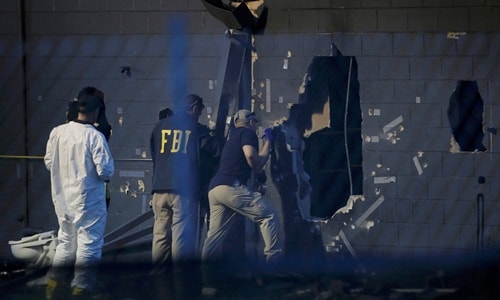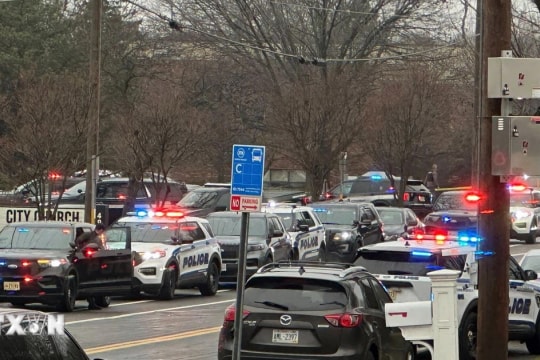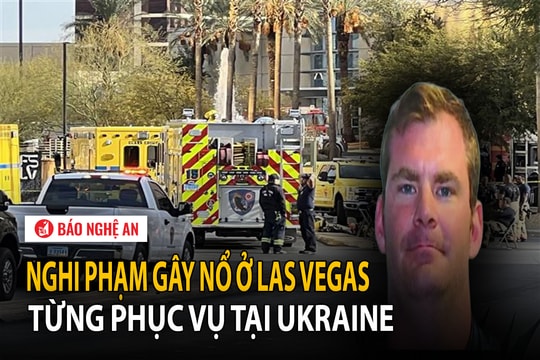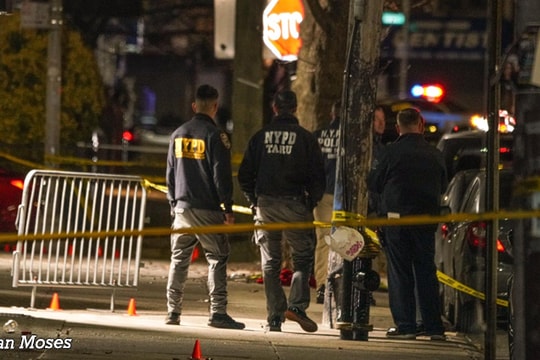Why America has the most mass shootings in the world
America has many mass shootings, perhaps because of easy access to guns, the desire for fame, and the copycat mentality of attackers.
 |
Investigators work at the scene of a shooting in Orlando, Florida. Photo: Reuters |
When a gunman attacked a gay nightclub in Orlando yesterday, killing 50 people, he joined a long list of attackers in the United States who have taken multiple lives at once.
When it comes to gun massacres, the United States has a particularly tragic history: There are more mass shootings in the United States than any other country in the world, according to a study published last year.
Between 1966 and 2012, there were 90 mass shootings in the United States, out of 292 worldwide. Mass shootings were defined in the study as having four or more victims, but did not include gang-related killings or killings of multiple family members. Such shootings occurred at a movie theater in Aurora, Colorado, and Sandy Hook Elementary School in Newtown, Connecticut, in 2012. The attack at a gay nightclub in Orlando on June 12 was the worst mass shooting in U.S. history, with at least 50 people dead and 53 injured.
While the US has 5% of the world's population, 31% of mass shootings occur in the US. "People are a little surprised by these statistics," said Adam Lankford, an associate professor of criminal justice at the University of Alabama, who conducted the statistics and analysis.
American Difference
Mr. Lankford looked into the records of the attacks and found several characteristics that set the United States apart from other countries.
In the US, people are more likely to die in a shooting if they are at work or school. Abroad, incidents often occur near military bases.
In more than half of the cases in the United States, the attacker had more than one gun. In other countries, attackers often had only one gun.
In the United States, the average number of victims per mass shooting is 6.87. In 171 other countries, the average number is 8.8.
Lankford argues that fewer people die in mass shootings in the US because American police are regularly trained to deal with such situations, even though it happens less frequently than other types of crimes.
"Police in other countries react more slowly and may not be as well prepared to react," he said.
The phenomenon of "spreading"
Many shooters in the United States have mental illness, according to statistics. But other studies have shown that the estimated number of mental illnesses has not increased significantly, while the number of mass shootings in the United States has skyrocketed.
Such attacks tripled between 2011 and 2014, according to an analysis by Harvard Medical School and Northeastern University. The Harvard study found that on average, there was an attack every 64 days. Over the previous 29 years, there was an attack every 200 days, on average. By contrast, the overall U.S. homicide rate and gun violence rates have declined significantly over the past two decades.
Some researchers believe that mass shootings can be contagious: One murder or shooting can trigger another within about two weeks — a kind of “contagion” that lasts about 13 days, researchers concluded in another study.
This copycat phenomenon is more prevalent in the United States because guns are more accessible to Americans than in other countries. The United States has more guns than any other country in the world. It is estimated that there are between 270 and 310 million guns in circulation in the United States. With a population of about 319 million, the average American owns a gun.
More than a third of Americans say someone in their household owns a gun, according to the Pew Research Center. The next country with the most guns is India, with 46 million guns for a population of 1.25 billion. However, India doesn’t even make the top five countries for mass shootings.
The numbers show that gun restrictions make a difference. Lankford cites Australia, which had four mass shootings between 1987 and 1996. After those incidents, public opinion turned against gun ownership and parliament passed stricter gun laws. Australia has not had a mass shooting since.
However, there is no similar political trend in the United States. Pew polls conducted after many high-profile mass shootings have found that Americans are more likely to support gun ownership after such incidents.
Desire to be famous
Lankford offers a theory as to why gunmen carry out attacks. “I’m struck by the research that shows that fame is one of the most important goals of this generation,” Lankford says. “It seems that Americans are increasingly seeking fame, and there’s no doubt that there’s a correlation between attackers knowing that the media will cover their attacks and their likelihood of committing them.”
Attackers may also seek notoriety in the name of what they see as a “mission,” such as an Islamic jihad movement, he said.
"It's clear that terrorists want to be famous, whether it's for their own sake or for some other motive. We saw this trend since the 1972 Olympic hostage crisis," Lankford said. "If the Orlando attack was motivated by radical Islamist ideology that hates homosexuals, then the attacker may have wanted to be famous for that motive.
The father of Orlando nightclub shooter Omar Mateen said he was angry when he saw gay men kissing.Mateen also called 911 and pledged allegiance to Islamic State (IS) leader Abu Bakr al-Baghdadi before carrying out the attack. IS's news agency also claimed responsibility for the shooting, saying the attacker was a fighter of the group.
Lankford said the danger is that the Orlando attack could inspire others to follow suit.
“Gunmen who want to be famous will try to kill more victims, as a kind of competition,” he said. “But what’s more frightening is that attackers may find new ways to get attention.
"Our murder rate is higher than in many European countries. These kinds of attacks make us look bad compared to the rest of the world and give us a reputation as a violent country," Lankford said. "Honestly, if we can send a message to the world from these incidents, it's 'this can happen, be prepared and learn from it before it happens to you.'"
According to VNE





